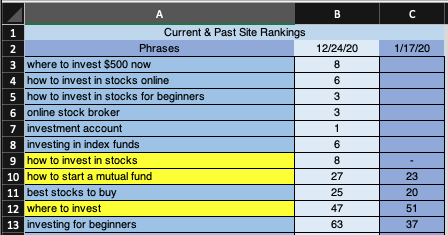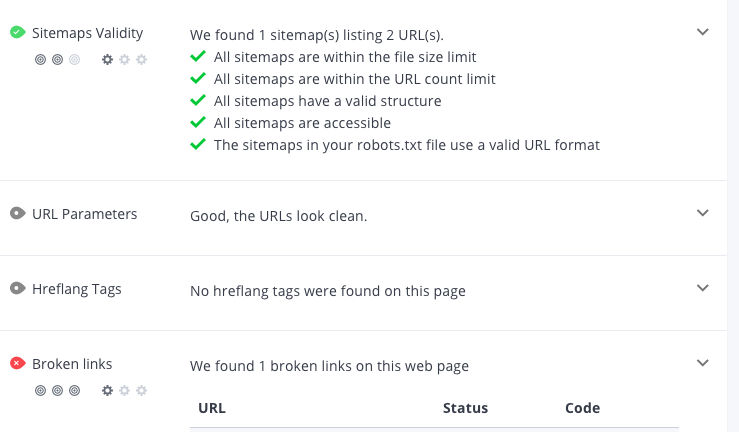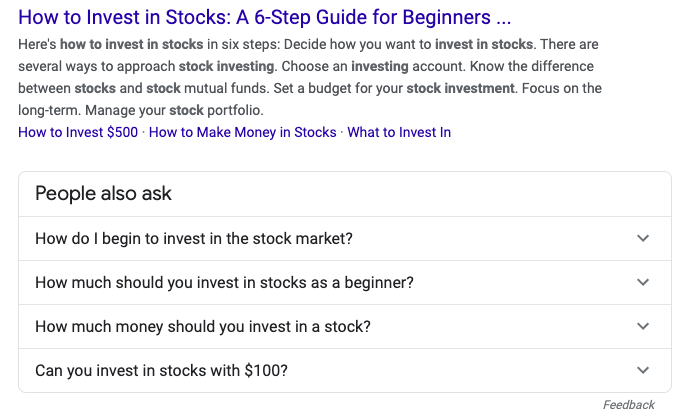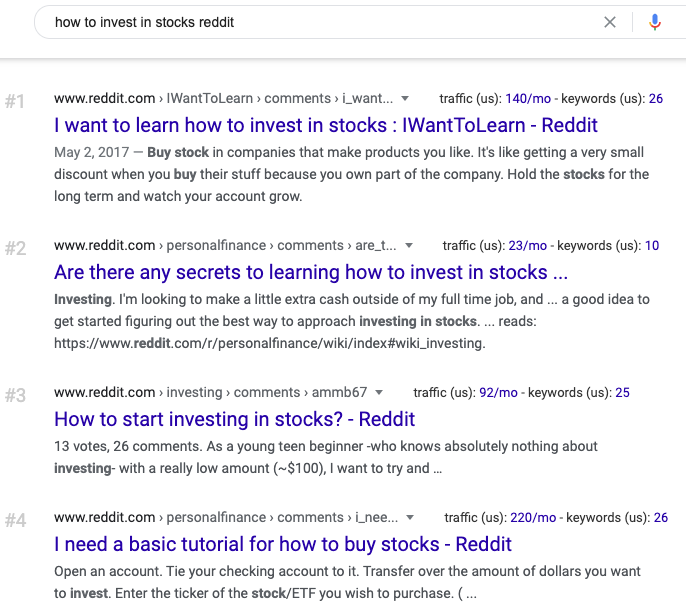How to rank a keyword
So you have a site, but you notice that you aren’t ranking for your number one service. Your competition has dominated the first page of Google and you are wondering what you can do to get an edge. This is an all too familiar story that all SEO’s have encountered with companies and businesses of all sizes so you are not alone in your struggle.
In the spirit of full transparency there are a myriad of reasons for why your website may not be ranking as high as your competition from domain authority, to backlinks, the list can go on and on however, I have a few ideas that can help kickstart your journey into better rankings and hopefully more conversions.
Let’s say you are a financial company that helps your customers with mutual funds. You have an informational site filled with helpful tips on stock market investing. The problem is that you live in a relatively large city and have quite a bit of competition, so where do you begin?
Keyword chosen: How to invest in stocks
Keyword Analysis
I would start my strategy by analyzing your currant rankings for that keyword. Let’s say you are ranked number 8 organically behind the bigger companies in your area. Once you have meta tags in place it is a good idea to keep an eye out on how your keywords perform over time. This can be as simple or complex of a document as you wish. This can help you track patterns and help you understand which keywords perform better than others.

Collect Data Points
Next, I would log in to your analytics and search console accounts to get an idea of your traffic patterns. I would also do an analysis of your site in conjunction with the analytics data to see which pages have those keywords prominently featured either in the meta tags or in the content. Cross referencing this data can help me gain clarity into why those pages may not be seeing the traffic needed to convert, or an improved ranking. Perhaps the user visiting your site isn’t getting the information they need to stay longer on your site, or perhaps there are no next steps for them to take in order to convert.
Competitive Analysis
A competitive analysis of your competition is also necessary to understand how and why they are outranking you and it would give me a better idea for we can do to achieve a better placement. I would also perform a content analysis on your own site revolving around that keyword. SEM rush has a content analysis tool that can help analyze what is showing up in Google’s top results and provide recommendations for SEO friendly content to help in addition to useful backlinks, readability, and overall length.
Technical SEO Audit
Next, I would perform a thorough technical SEO audit. I would take a look at any technical issues surrounding the pages, diagnose them, and put together a strategy for implementation. Examples of common errors would be pages that aren’t loading quickly enough or are hard to navigate to. It’s also possible that the search engines cannot find those pages to crawl them (submitting them to Google via Google Search Console will help with that). I also would look for any broken links or duplicate content issues.

Keyword Research & Implementing Meta Data
Keeping user experience in mind I want to make sure that I can get inside the mind of your customer and understand their thinking process. I want to utilize keyword research to discover searcher intent and narrow down related secondary keywords to backup “how to invest in stocks” that searchers may be utilizing to land on your competitors pages over yours. I would make sure to implement correct page tagging (titles, descriptions, h1 tags), in addition to content optimization with internal linking structure and appropriate CTA’s. If your customers are asking questions, I want to make sure we are answering them to increase click through rates. At the end of the day creating content for the end user that will be engaging and keep them coming back to your site as a resource is the key to help your overall ranking.

Optimize for non organic traffic
I also want to make sure that we are promoting your content by utilizing non organic channels to drive visibility to that page so more eyes get on it. Targeting social media shares, email blasts, setting up google alerts around the topic and responding to conversations, answering questions on Quora, Reddit, and other Financial networking sites, sharing pages and articles with industry influencers, and obtain qualified cross-linking opportunities.


Keep an eye on things
Lastly, I would continue to monitor the progress of our primary and secondary keywords by tracking rankings via google and perhaps a tool like rankactive if spreadsheets and manual tracking become too much. I would continue to monitor changes in the industry for where the content or even meta tags may need to be updated for relevancy, and of course keeping an eye on the overall traffic patterns, bounce rates, and time on site. Once we have our keyword ranking at the top of the SERP’s, we don’t want to risk losing our position.
SEO is not a one trick pony and may need some tweaking as time progresses. Keeping an eye on your analytics and closely monitoring how customers are interacting with your content will determine what next steps need to be taken, if any. Remember, you may see results right away or it may take the search engines some time. The important thing is to not panic if you see a negative fluctuation and “trust the process.” A lot of SEO experts rely on their intuition based on their experience and trial by error. This is not meant to scare a novice but simply reassure you that patience is key and when you find what works for you, your business will be well rewarded!
For any other questions related to this topic feel free to drop me a line.